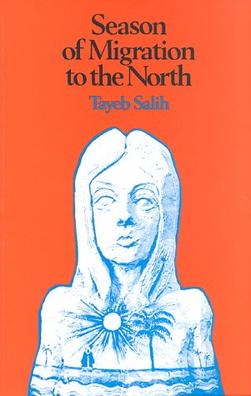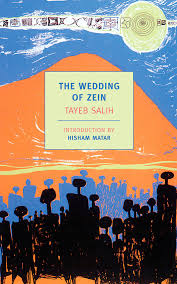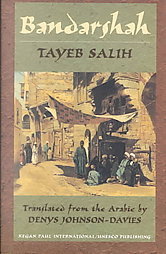Tayeb Salih: The Voice of Sudanese Literature
- poni816
- 2 days ago
- 5 min read
Tayeb Salih (Arabic: الطيب صالح; aṭ-Ṭayyib Ṣāliḥ) was born on July 12, 1929, in Karmakol, a village near Al Dabbah on the Nile in northern Sudan. He passed away on February 18, 2009, in London, leaving behind a legacy that profoundly shaped Arabic literature. Often referred to as the "genius of Arabic literature," Salih’s body of work has had a profound impact not just in Sudan, but across the Arab-speaking world and beyond.
His works are known for their depth, lyrical style, and the way they bring to life the complexities of Sudanese society, the intersection of cultures, and the post-colonial human condition. Best known for his novel Season of Migration to the North, Salih's works delve into themes of identity, colonialism, and the intersection of tradition and modernity.

Early Life and Education
Tayeb Salih was born in a rural farming community near Al-Debba, along the Nile River. He was raised in a traditional Sudanese environment where Islamic teachings and cultural customs were deeply rooted in everyday life. He began his education in a khalwa (a traditional Quranic school), where he memorized parts of the Quran and was introduced to classical Arabic.
Later, Salih attended Gordon Memorial College (now the University of Khartoum), the most prestigious higher learning institution in Sudan at the time. His academic excellence and linguistic prowess earned him a scholarship to study in the United Kingdom. He eventually pursued postgraduate studies at the University of London, majoring in both English literature and international education.
Professional Career
Though initially trained in agriculture, Tayeb Salih’s career trajectory veered toward media, education, and cultural diplomacy. He spent a significant portion of his life abroad, particularly in the UK and the Middle East.
Some of the major roles he held include:
BBC Arabic Service (London): Salih worked as a cultural journalist and producer, where he gained a reputation for insightful literary commentary. His work at the BBC exposed him to global perspectives and allowed him to interact with some of the leading Arab intellectuals and writers of his time.
Sudan’s Ministry of Information: Upon returning to the Arab world, Salih served as Director-General of Information in Doha, Qatar, helping to shape the nation’s media strategy during its early years of independence.
UNESCO Representative: Salih later moved to Paris, where he spent over a decade working for the United Nations Educational, Scientific and Cultural Organization (UNESCO) as its representative for the Gulf States. His work there focused on cultural cooperation and the promotion of literacy and education.
In addition to these formal roles, Salih also contributed weekly literary columns to Al Majalla, a leading Arabic-language magazine, through which he influenced generations of Arab writers and intellectuals.
Literary Contributions
Season of Migration to the North (1966)
Salih's most acclaimed work, Season of Migration to the North, is a seminal postcolonial novel that examines the complexities of identity and the lingering impacts of colonialism. The story follows a young Sudanese man who returns to his village after studying in England, only to discover the dark past of another educated villager, Mustafa Sa’eed, who also lived in the West. Through the character of Mustafa, Salih critiques colonialism and its psychological effects on colonized peoples.
The novel engages themes such as:
The duality of identity and the trauma of cultural dislocation.
The exoticization of the East by the West.
The internal conflict between modernity and traditionalism.
The novel was initially banned in Sudan due to its candid exploration of sexuality and colonial critique but has since been recognized as a masterpiece of Arabic literature.
The Wedding of Zein (1966)
In this novella, Salih shifts to a more comedic tone, portraying the life of Zein, a peculiar and endearing village character known for his eccentricities. The story unfolds in the same village setting as Season of Migration to the North, offering a rich tapestry of rural Sudanese life. The Wedding of Zein was adapted into a film that received accolades at the Cannes Film Festival.
Bandarshah (1971–1977)
This work is a two-part novel (Bandarshah and Daw al-Bayt) which continues Salih’s exploration of Sudanese rural society, mixing myth, memory, and magical realism. Here, Salih moves further into allegorical territory, examining how memory and history shape national and personal identities.
Themes and Style
Salih's writings are deeply rooted in his Sudanese heritage, often exploring:
Cultural Identity: The struggle between traditional Sudanese values and Western influences.
Postcolonial Discourse: The psychological and societal impacts of colonialism.
Religious and Moral Questions: The role of Islam in modern Sudanese society.
His narrative style is noted for its lyrical prose, blending classical Arabic with Sudanese dialects, creating a unique and evocative literary voice. Wikipedia
Legacy and Recognition
Tayeb Salih’s literary contributions earned him both critical acclaim and popular admiration. His impact is especially visible in the way Sudanese and Arab writers approach identity, history, and narrative form.
Some notable recognitions and tributes include:
“Season of Migration to the North” voted the most important Arab novel of the 20th century by the Arab Literary Academy in 2001.
The establishment of the Al-Tayeb Salih International Prize for Creative Writing, launched in 2010, which encourages Arabic literary creativity in fiction, drama, and literary criticism.
His works are studied globally, included in university curricula in both the Arab world and Western institutions, and translated into more than 30 languages.
Streets, schools, and cultural centers in Sudan and other Arab countries have been named after him.
Death and Posthumous Recognition
Tayeb Salih passed away in London on February 18, 2009, at the age of 79. His death marked the end of a monumental literary journey, but his voice continues to resonate. Writers, academics, and readers alike continue to explore and draw inspiration from his nuanced portrayals of identity, culture, and society.
Conclusion

Tayeb Salih’s literary voice echoes far beyond the borders of Sudan. His ability to weave complex narratives of identity, memory, and belonging has positioned him among the greats of world literature. Through his vivid storytelling, Salih challenged readers to confront the difficult questions of post-colonialism, modernity, and cultural conflict. But more than that, he gave a voice to the voiceless, those caught between old worlds and new, tradition and transformation.
His works continue to inspire writers, scholars, and readers across generations, not only because of their literary brilliance but because they capture the deep, often painful beauty of navigating two worlds. In Salih’s stories, the village meets the city, the colonized meets the colonizer, and the past converses with the future. And in that space, he created timeless literature that speaks to the shared human experience across nations, cultures, and time.
About Personality of the Week
The Personality of the Week series highlights influential figures who have made a lasting impact in their fields, from literature and activism to innovation, technology and leadership. Each week, we feature a trailblazer whose work and legacy continue to inspire change across the African continent.
Through this series, we aim to celebrate excellence, share powerful stories, and spark meaningful conversations. Join us in exploring the lives of remarkable individuals shaping history, culture, and innovation.







Comments